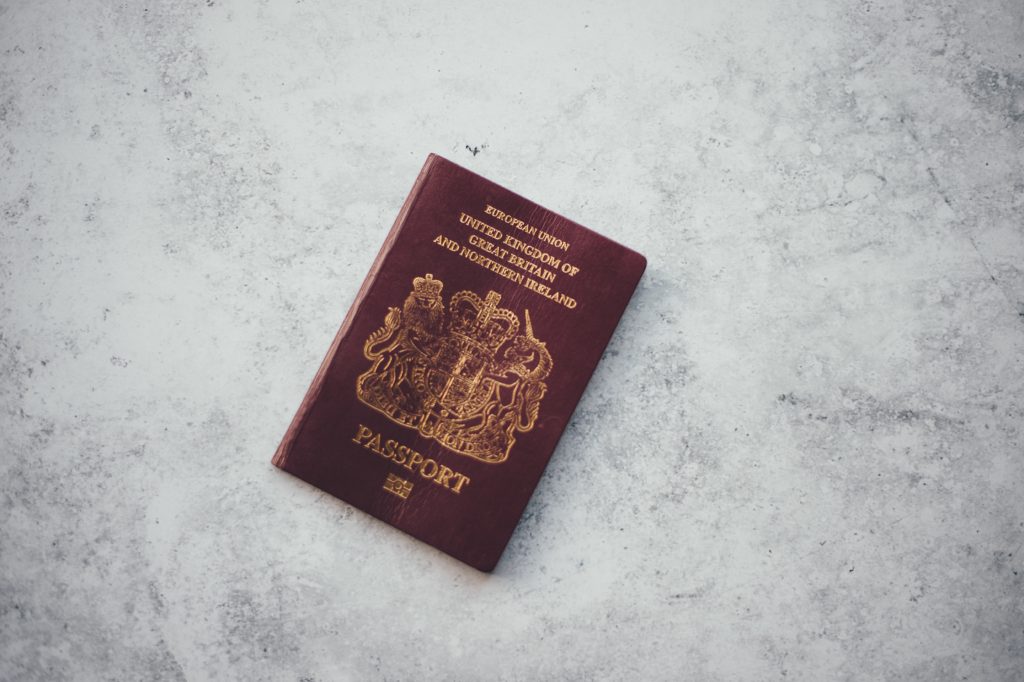
an International Law perspective
Written by Pro Bono Group member and volunteer, Kendra Silva Espin
Introduction
The Nationality and Borders Bill is currentlyi at the Committee stage at the House of Lords, after having passed all the stages at the House of Commons. As a result, this Bill has recently spiked numerous debates as it gets closer to the final stages. One of the issues is people becoming ‘stateless’, as people that are legitimately allowed to stay in the UK fear being ‘stripped of [their] British citizenship’ii without any access to justice. However, this proposed Bill also has the potential to conflict with recognised Public International Law Principles, Conventions and Articlesiii.
What are the aims of the Bill?
The Bill outlines three main aims.
1. To create a more effective and fair system with the aim to protect people in genuine need of asylum
2. To break criminal trafficking networks to save lives
3. To remove individuals with no right to be in the UK
Below, I will analyse the Bill and how the Bill does not meet these aims in an adequate, humane manner.
Stateless people and no route to access justice (Clauses 9,27)
Clause 9 exempts the government, when ‘reasonably practicable’, of notifying a person of the ‘decision to deprive a person of citizenship’4, which has the potential of making people stateless. Article 1 of the 1954 Convention5 defined that under International Law, a person who is stateless is ‘not considered as a national by any state under the operation of its law’; in fact, the UK has adapted this definition into its own domestic law which can be observed in the ‘Immigration Rules part 14: stateless persons’6. At present, there are no figures that provide an accurate representation of the number of people that are stateless across the globe; thus, the UN states this to be ‘millions’vii. The issues that stateless people face highly dehumanise them, as they have no access to basic human rights such as education, healthcare, employment, as well as being unable to get married and own property. The situation that stateless people face is so alarming that the UNHCR has set itself the goal to ‘end statelessness by 2024’viii. Therefore, it is evident that Clause 9, which presents a high risk of creating more stateless people, is a clear obstacle to international goals.
Clause 9 also presents serious concerns regarding access to justice for those deprived of citizenship. In the cases where the decision has been made to revoke a citizenship, people would usually be given 5 working days notice. With Clause 9, there is no obligation to provide a notice time. Thus, it could be given without warning which will not allow people the time to access justice. As a result, it seems inevitable that some people may seek to appeal once they have been removed from the UK. However, Clause 27 of this Bill removes even the right to appeal from abroad. This is clearly challenging the human right of access to justice as there are null options left for people to seek justice and have their perspective heard.

Penalising refugees seeking asylum (Clause 39ix & Clause 34, Part 2)
With Clause 39, the Bill has the aim of ‘making arriving in the UK without entry clearance an offence’x. The explanatory notes further state that ‘this will allow prosecutions of individuals who are intercepted in the UK territorial seas…’xi. The introduction of this Clause could be understood if explained from the perspective that the UK government, with this change, aim to prosecute traffickers and people smugglers; however, this is far from the reality, as they focus on the people intercepted ‘at sea’. In fact, one may even argue that the UK is neglecting the apparent issues that refugees face, with zero reference ‘to the deterring dangerous journeys’xii, as the UNHCR noted. The UK should first take into consideration the life threatening and perilous journeys people take instead of wanting to immediately prosecute them as this Bill wants to achieve.
Sadly, even if asylum seekers claim asylum to an immigration officer immediately upon their arrival to the UK, which is the current system, they will still be prosecuted if this Bill came into force. This Clause directly challenges Article 31 of the Refugee Convention, which the UK themselves have signed, which states that states to the Convention should ‘not impose penalties, on account of their illegal entry or presence, on refugees who, coming directly from a territory where their life is threatened’xiii. Additionally, the UN purports that the ‘seeking and enjoying asylum is a fundamental human right’xiv, which is also directly challenged in this Bill.
Nevertheless, the UK government has argued that they would not violate the Refugee Convention as there is no mention of a prohibition of refugees that do not ‘come directly’ to the UK. This has been done with the use of Clause 34 Part 2 in the Bill, which explains that refugees must come directly to the UK and not have ‘stopped in another country…unless they can show that they could not reasonably be expected to have sought protection…in that country’xv. Clause 34 also introduces ‘the long-standing principle that asylum seekers should claim (asylum) at the earliest opportunity in the first safe country they reach’xvi. However, this principle is not recognised in Public International Law and could never be recognised, as it conflicts with the established international law principle of co-operation which puts on states an ‘obligation…to co-operate with each other’xvii; and co-operation is a foundation for many other principles.

As a result, two key issues arise from these two Clauses.
A) Reduces the amount of asylum seekers allowed to enter the UK
Clause 39 takes away one of the most significant ways asylum seekers use to enter the UK. Thus, the amount of asylum seekers will reduce over time. This clause’s purpose can be somewhat reasonable when we considered cases in which people are not necessarily genuine seekers, as some do ‘not even know what asylum means’xviii, but were claiming asylum upon arrival and the UK Government then become responsible for them.
However, this Clause can potentially do more harm than good, as it impacts those who are genuine seekers by criminalising them when they have already fled their country for legitimate reasons. This situation creates one key question: how will genuine asylum seekers be distinguished and allowed to enter the UK?
The answer is through resettlement schemes which offer a ‘safe and legal route to vulnerable refugees in need of protection’xix to stay in the UK up to five years. However, the key issue with such schemes is that they are only a solution for the people who have the resources and knowledge to complete the application for the schemes. However, if we take into consideration the figures from 2014 in which ‘one fifth of all the individuals granted asylum’xx were under resettlement schemes, many individuals will be left out. Those who arguably have the most need for asylum, such as women who have been victims of gender-based violence, may need an immediate route to safety. This Bill could mean they have no legal route to do so. The Bill’s lack of consideration of such circumstances can create a structural obstacle in the justice system, as many genuine asylum seekers will be left completely vulnerable and without any access to justice; this has even resulted on this Bill being referred to as ‘the UK’s anti-refugee Bill’xxi. This is ironic as Priti Patel, the current Secretary of State behind the Bill, has consistently argued that the introduction of this Bill will create a ‘fairer system’xxii.
B) Putting pressure on neighbouring countries to the state in conflict
Clause 34 Part 2 of the Bill reads that ‘that asylum seekers should claim (asylum) at the earliest opportunity in the first safe country they reach’xxiii. However, this does not correlate with existing international law principles. Moreover, this has the potential of globally impacting other governments and countries, particularly neighbouring countries of the states that are in conflict. If we consider the case of the Syrian refugee crisis: if the UK had made use of this ‘principle’, it would have meant the neighbouring countries such as Turkey would have added pressure to take in Syrian refugees. This is very concerning when we consider that countries geographically near have similar levels of development. To put this into perspective Syria’s GDP per capitaxxiv in 2021 was 870.00 USDxxv, while Turkey’s GDP per capita in 2020 was 8.538,17 USDxxvi. Meanwhile in contrast, the UK’s GDP per capita in 2020 was 40.284,64 USDxxvii. Thus, those neighbouring countries may also be lacking resources to provide for their own citizens or be dealing with their own conflicts that does not place them as a safe country for refugees, but perhaps a safer country than the refugees’ country of origin.
The need for more economically developed countries, such as the UK with higher GDPs, to take in large amounts of refugees is reflected by the increase of the Syrian refugee population in the UK that rose from 8,526 in 2011 to 48,000 in 2019xxviii. If this ‘principle’ had existed during 2019, Turkey would have faced an additional pressure of an extra 40,000 refugees on top of the ‘more than three million Syrians’xxix they took. Therefore, one may ask, what is the necessity of putting additional pressure on neighbouring countries that are likely to be less economically developed than the UK in a future humanitarian crisis? Nonetheless, the need for this Bill could be understood when we consider that the UK has ‘a significant backlog of cases’xxx, which results in legitimate refugees being unable to access ‘housing and welfare benefits’xxxi to which they are entitled. This is especially so when we consider the right to housing as the UK currently faces a ‘housing crisis’xxxii.

Conclusion
To conclude, as this blog has demonstrated, the aims of this Bill are not actually reflected in the drafting of the Bill. The first aim of creating a fairer system to protect people with genuine asylum claims is not met, since Clause 34 Part 2 could potentially be cutting down the genuine asylum claims that can be made in the UK. The second aim of saving lives by breaking down trafficking networks is not reflected within the Bill, since Clause 39 highlights that saving lives is not in reality at the forefront of the legislature. This is because the Bill neglects the dangerous journeys asylum seekers can take where lives are highly at risk. The last aim of this Bill is to remove people with no right to be in the UK. However, the Bill, as seen under Clause 27, opens the possibility of revoking citizenship without notice and removing the right to appeal, which runs the risk of upholding unfair decisions on genuine asylum claims and limiting people’s access to justice. This does not equate to a fairer society.
The Bill does not meet its goals, and highly conflicts with International Human Rights, International Law principles and has the potential to negatively impact other countries across the globe by placing additional pressure on their governments. Although, in theory, the principle of jus cogens applies, which refers to the belief that there is no hierarchy of norms in International Law (as the states are the source of International Law), the UK here is indicating that they are above International Law principles. Unfortunately, this Bill has the potential to limit the possibilities for refugees to stay in the UK, who are already vulnerable, which leaves them with limited to no route to safety.
This Bill highlights the reality that International law has ‘failed’,xxxiii as it lacks an enforcement mechanism to make countries accountable when their domestic law challenges International Law regulations. This failure of International Law calls for Global Lawxxxiv to take over. However, as Global Law continues to develop and is not established as we read this blog, it is all left in the hands of the UK government. Many UK citizens have already tried to make themselves heard with petitionsxxxv calling for the removal of the clauses discussed in this blog, but they have unfortunately, but not unsurprisingly, been rejected by the government.
References
i This is in accordance with the update on the 24th February 2022 on the official UK Parliament website, UK Parliament, ’Parliamentary Bills’ (UK Parliament , 23 February 2022)<https://bills.parliament.uk/bills/3023> accessed 24 February 2022
ii Naga Kandiah, ’Like Shamima Begum, I could soon be stripped of British citizenship without notice’ (The Guardian , 15 December 2021)<https://www.theguardian.com/commentisfree/2021/dec/15/shamima-begum-stripped-british-citizenship-nationality-and-borders-bill> accessed 10 February 2022
iii This blog defines International Law as a system that consists of a set of rules, principles and agreements that are binding between countries.
iv UK government, ’Remove Clause 9 from the Nationality and Borders Bill’ (Petitions, 5 January 2022)<https://petition.parliament.uk/petitions/601583>accessed 5 February 2022
v 1954 Convention Relating to the Status of Stateless Persons
vi UK gov, ’Immigration Rules’ (GOVUK, 25 February 2016)<https://www.gov.uk/guidance/immigration-rules/immigration-rules-part-14-stateless-persons>accessed 3 February 2022
vii UN, ’Ending statelessness’ (UNCHR)<https://www.unhcr.org/ending-statelessness.html>accessed 2 February 2022
viii UNHCR, ’Global Action Plan to End Statelessness: 2014 – 2024’ (The UN Refugee Agency, March 2013) <https://www.unhcr.org/ibelong/global-action-plan-2014-2024/> accessed 1 February 2022
ix Please note that reference of asylum seekers is also made in Clause 11 and Clause 15 part.2.
x Parliament, ’Legislative Scrutiny: Nationality and Borders Bill (Part 3) – Immigration offences and enforcement'(Committees Parliament, 24 November 2021)<https://committees.parliament.uk/publications/8021/documents/83303/default/>accessed 4 February 2022
xi House of Lords, House of Commons, ’Legislative Scrutiny: Nationality and Borders Bill (Part 3) – Immigration offences and enforcement’ (Parliament , 1 December 2021)<https://committees.parliament.uk/publications/8021/documents/83303/default/>accessed 2 February 2022
xii UNHCR, ’UNHCR Observations on the Nationality and Borders Bill, Bill 141, 2021-22’ (UNHCR Observations, October 2021)<https://www.unhcr.org/uk/615ff04d4.pdf> accessed 2 February 2022
xiii UNHCR, Article 31 of the ‘1951 Convention relating to the Status of Refugees: Non-penalization, Detention and Protection’, <https://www.unhcr.org/3bcfdf164.pdf> accessed 5 February 2022
xiv UN, ’UK Borders Bill increases risks of discrimination, human rights violations’ (UN News, 14 January 2022) <https://news.un.org/en/story/2022/01/1109792>accessed 3 February 2022
xv House of Commons, ’Legislative Scrutiny: Nationality and Borders Bill (Parts 1, 2 and 4) – Asylum, Home Office Decision-Making, Age Assessments, and Deprivation of Citizenship Orders’ (UK Parliament , 19 January 2022)<https://publications.parliament.uk/pa/jt5802/jtselect/jtrights/1007/report.html>accessed 2 February 2022
xvii Rüdiger Wolfrum, ’International Law of Cooperation’ (2010) 44(11) Max Planck Encyclopaedias of International Law
xviii Parliament, ’Legislative Scrutiny: Nationality and Borders Bill (Part 3) – Immigration offences and enforcement'(Committees Parliament, 24 November 2021)<https://committees.parliament.uk/publications/8021/documents/83303/default/>accessed 4 February 2022
xix UK gov, ’UK resettlement programmes: funding instruction 2021 to 2022’ (Gov UK, 22 June 2021)<https://www.gov.uk/government/publications/uk-resettlement-programmes-funding-instruction-2021-to-2022>accessed 2 February 2022
xx Ein, ’House of Commons Library publishes informative new statistical overview of the number of asylum seekers in the UK’ (Electronic Immigration Network, 07 July 2021) <https://www.ein.org.uk/news/house-commons-library-publishes-informative-new-statistical-overview-number-asylum-seekers-uk> accessed 4 February 2022
xxi Helen Lock, ’The UK’s ‘Anti-Refugee Bill’: What Everyone Should Know’ (Global Citizen, 7 February 2022)<https://www.globalcitizen.org/en/content/nationality-borders-bill-refugees-explainer/> accessed 24 February 2022
xxii BBC, ’Priti Patel pledges overhaul of asylum seeker rules’ (BBC News, 24 March 2021)<https://www.bbc.co.uk/news/uk-politics-56500680> accessed 4 February 2022
xxiv GDP per capita is the Gross Domestic Product of a country divided equally between each citizen, which represents the development of a country; the higher the GDP, the more economically developed a country is, and the resources available are greater too in theory.
xxv Statistic from Trading Economics, TE, ’Syria GDP per capita’ (Trading Economics, December 2019) <https://tradingeconomics.com/syria/gdp-per-capita> accessed 4 February 2022
xxvi Statistic according to DC, ’Turkey GDP’ (Data Commons, December 2021) <https://datacommons.org/place/country/TUR?utm_medium=explore&mprop=amount&popt=EconomicActivity&cpv=activitySource%2CGrossDomesticProduction&hl=es>accessed 4 February 2022
xxvii Statistic according to the DC, ‘UK GDP’ (Data Commons, December 2021) <https://datacommons.org/place/country/GBR?utm_medium=explore&mprop=amount&popt=EconomicActivity&cpv=activitySource%2CGrossDomesticProduction&hl=es>accessed 4 February 2022
xxviii ONS, ’The Number of Immigrants and Refugees in the UK’ (ONS, 24 December 2018)<https://www.ons.gov.uk/aboutus/transparencyandgovernance/freedomofinformationfoi/thenumberofimmigrantsandrefugeesintheuk>accessed 4 February 2022
xxix Aljazeera, ’How killing of Syrian refugee marks an alarming trend in Turkey’ (News, 12 January 2022)<https://www.aljazeera.com/news/2022/1/12/turkey-news-log-jan-12> accessed 7 February 2022
xxx Ibid endnote xv.
xxxi Ibid endnote xxvi.
xxxii Lydia McMullan, ’UK housing crisis: how did owning a home become unaffordable?’ (The Guardian , 31 March 2021) <https://www.theguardian.com/business/ng-interactive/2021/mar/31/uk-housing-crisis-how-did-owning-a-home-become-unaffordable> accessed 10 February 2022
xxxiii Several cases have shown that international law is failing which Mario Silva argues in State Legitimacy and Failure in International Law (Brill 2014)
xxxiv Global Law is a legal phenomenon that has not reached a universal agreement about what it actually means, the definition of global law that this blog uses is in accordance with Goodwin’s definition that Global Law refers to ‘the relations and interactions between systems of law […] whether formal or informal’ (M.Goodwin in ‘What I Talk about when I Talk about Global Law’, Tilburg Law Review, January 2012, https://brill.com/view/journals/tilr/17/2/article-p269_16.xml) which international law cannot cover.
xxxv Response of rejection to petition to remove Clause 9 given on the 5th January 2022: https://petition.parliament.uk/petitions/601583> accessed 7 February 2022
